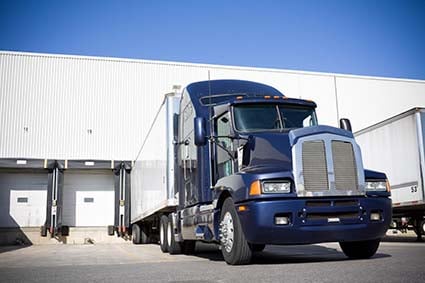We are on the potential brink of global Supply Chains disruption. Many of the major brick and mortar retailers in America are now temporarily closed until at least mid-to-end of April. Online merchants are still open, although Amazon is limiting shipments to priority medical and health products.
Because of the exponential infection rates and spread of the virus, the practice of “social distancing” means hundreds of thousands (maybe millions) of store employees are temporarily out-of-work. Many are not receiving any kind of employer-based income during this furlough.
In the last couple days, MA, MI, MD, OH, LA, NY, CA, WA, IL, OR, and NJ have or are enacting public health policies for all citizens to “shelter-in-place”. Many state school systems are closed, which puts strains on employees with school-aged children who still need to work. Compounding the problem, many low income child are on school lunch programs through the local school systems and communities are stepping up to ensure children do not go hungry.
Coronavirus Case Study: Crutchfield Corp
One of the major concerns of retailers and online merchants is how much of an impact this will make on global and local supply chains. We asked the management of Crutchfield Corp., one of F. Curtis Barry & Company’s fulfillment clients, how they are fairing with the coronavirus' effects on their Chinese Supply Chain.
Crutchfield Corp. was founded in 1974 by Mr. Bill Crutchfield, as a catalogue and small retail business. In our experience with them, Crutchfield has become one of America’s most innovative, online merchants in the last 24 years. Crutchfield's extensive inventory includes dozens of product categories of car and truck stereo sound, GPS, home audio, TV and video, cameras and drones, pro-audio and marine. Literally thousands of SKUs.
We thank Chris Grosclose, Chief Fulfillment Officer, and Rick Souder, Chief Operations Officer, for their insight. As you read this, remember every Supply Chain is different, but this is what Crutchfield experienced in the past 10 days:
- “China appears to be ramping production in the wake of the virus outbreak in November. We are hopeful we are not going to experience any immediate problems. We think some of this is going to depend on how the outbreak develops and subsides in China. It sounds like the Chinese are getting the virus under control. Crutchfield has no immediate plans to change how we procure product;
- A number of significant suppliers have told us that there will be disruptions to their Supply Chain. Details have been few. Most of the suppliers are unsure how significant the impacts will be or how long they will last
- A lot of new models are introduced at this time of the year. A significant number of these introductions have been delayed a few weeks. It is not clear if the delays are due to coronavirus or other issues or both;
- At this point we are receiving the vast majority of the goods we have ordered. Cancellations, delays or shortages are very minimal so far;
- Suppliers are developing various strategies for how they are allocating products that are or may be in short supply. Since information on specific shortages was non-existent, we could not try to buy extra on models we believed would be in short supply. Instead, we stepped up and bought insurance quantities (think of these as safety stocks) of our better-selling products to add a cushion to our inventory
- Consumer demand for many of the goods we sell has fallen off dramatically in China. We have heard of suppliers who are diverting some of the goods they had reserved for the Chinese market to the U.S.;
- Reports are that Chinese factory production should be back to normal shortly. However, we are told of significant backups in Chinese ports that will delay the shipment of whatever goods are produced. Again, details are unavailable.
- Crutchfield is doing everything we can do to remain operational and to keep employees safe.” As we post this, the Commonwealth of Virginia is directing non-essential businesses to close.
Thanks again to the management of Crutchfield! Open communication is what F. Curtis Barry & Company wants to foster. Our recent post on how Coronavirus (COVID-19) may impact your supply chain has some additional tips on developing your strategy to deal with this Supple Chain disruption.
Take Ways From Crutchfield Case
Our recommendations from this case study and other client conversations:
- Communication is at the heart of having an effective strategy. Appoint someone on your staff to expedite product.
- Take care of the best-selling product. Take care of the 20% of products that give you 80% of the sales. Don’t take it literally (80/20). It might be 30% products that give you 70% of the sales - you get the point.
- Can you take on “safety stocks” of best sellers to get through this period.
- Be ready for circumstances to change rapidly. People ask, “How long will this last?” The U.S. is just seeing the initial outbreak. Most public health officials say at least four to six weeks.
- In a matter of weeks, America has gone from stock market and personal wealth highs to plunging into a recession (and some speculate a depression).
We pray that you, your family and employees survive and thrive. The very best to you!
If we can help your company work through your strategies, please contact us. Please share with F. Curtis Barry & Company your observations and strategies. Contact Brian Barry, President of F. Curtis Barry & Company at 804-740-8743 X3; bbarry@fcbco.com; or make an appointment on my calendar.




SHARE